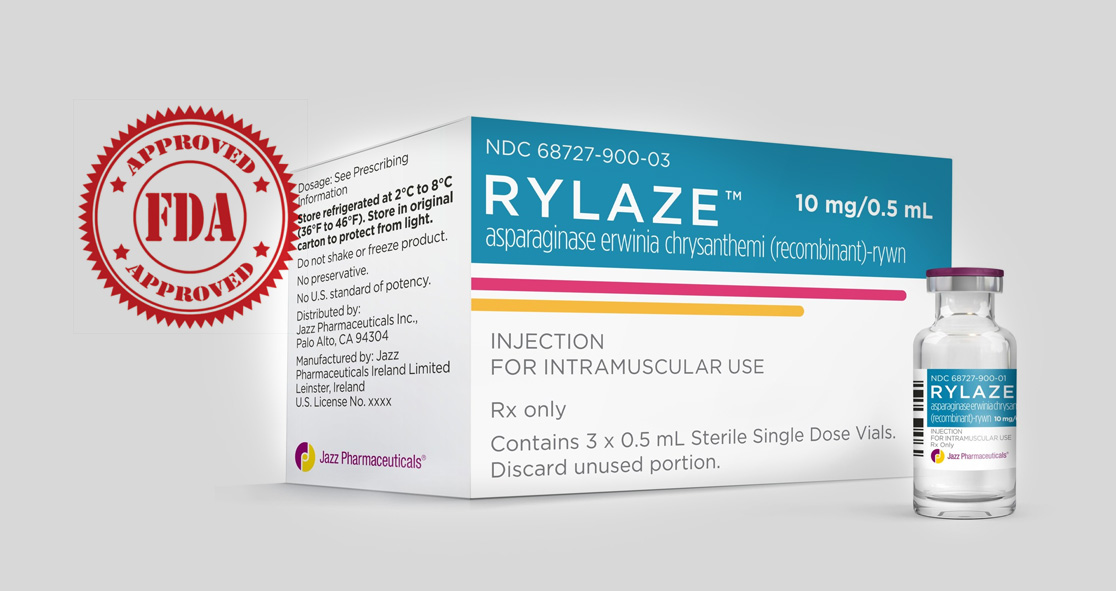The U.S. Food and Drug Administration (FDA) has announced the approval of Rylaze (asparaginase erwinia chrysanthemi (recombinant)-rywn) as part of a chemotherapy regimen for patients with leukemia and lymphoma.
Irish biopharmaceutical company Jazz Pharmaceuticals, the developer of Rylaze, received the new FDA approval.
Patients with acute lymphoblastic leukemia and lymphoblastic lymphoma who are allergic to the E. coli-derived asparaginase products can now be treated with Rylaze.
The FDA approved Rylaze after a study of 102 patients showed that Rylaze provided the target level of asparaginase activity in 94% of patients, according to Oncology Nursing News (ONN).
Dr. Gregory Reaman, Associate Director for Pediatric Oncology in the FDA’s Oncology Center of Excellence, said, “It is extremely disconcerting to patients, families and providers when there is a lack of access to critical drugs for the treatment of a life-threatening, but often curable cancer, due to supply issues.”
“Today’s approval may provide a consistently sourced alternative to a pivotal component of potentially curative therapy for children and adults with this type of leukemia,” he added.
Project Orbis, a part of the FDA’s Oncology Center of Excellence, reviewed the findings of Rylaze before approval.
The FDA said the only other approved drug for patients who have these allergic reactions has been in a global shortage since 2016.
Acute lymphoblastic leukemia is one of the most common types of pediatric malignancy. Every year, it affects nearly 5700 pediatric patients.
Asparaginase is one of the components of the chemotherapy regimen. It kills cancer cells by depriving them of substances that are necessary for survival, according to ONN.
It has been found that around 20% of patients are allergic to the standard E. coli-derived asparaginase so they need an alternative treatment.
Some of the most common side effects of Rylaze include hypersensitivity reactions, pancreatic toxicity, blood clots, hemorrhage, and liver toxicity, per the oncology new outlet.
Dr. Luke Maese of the University of Utah, Primary Children’s Hospital and Huntsman Cancer Institute in the US said, “The accelerated development and approval of Rylaze marks an important step in bringing a meaningful new treatment option for many ALL patients – most of whom are children – who cannot tolerate E. coli-derived asparaginase medicine.”
“Before the approval of Rylaze,” he added, “there was a significant need for an effective asparaginase medicine that would allow patients to start and complete their prescribed treatment program with confidence in supply.” The article was published on ONN and PharmaTimes.





















